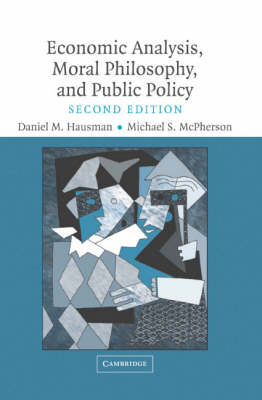Cambridge Surveys of Economic Literature
2 total works
Economic Analysis, Moral Philosophy and Public Policy
by Daniel M. Hausman and Michael S. McPherson
Published 28 March 1996
This 2006 book shows through accessible argument and numerous examples how understanding moral philosophy can improve economic analysis, how moral philosophy can benefit from economists' analytical tools, and how economic analysis and moral philosophy together can inform public policy. Part I explores rationality and its connections to morality. It argues that in defending their model of rationality, mainstream economists implicitly espouse contestable moral principles. Part II concerns welfare, utilitarianism and standard welfare economics, while Part III considers important moral notions that are left out of standard welfare economics, such as freedom, rights, equality, and justice. Part III also emphasizes the variety of moral considerations that are relevant to evaluating policies. Part IV then introduces technical work in social choice theory and game theory that is guided by ethical concepts and relevant to moral theorizing. Chapters include recommended readings and the book includes a glossary of relevant terms.
Economic Analysis and Moral Philosophy
by Daniel M. Hausman and Michael S. McPherson
Published 28 March 1996
Understanding moral philosophy can lead to better economics. Conversely, economic insights and analytical tools can help philosophers. This book draws these two ideas together. Part I focuses on rationality and argues that, in defending their model of rationality, economists find themselves espousing fragments of a highly contestable moral theory. In Part II the authors consider the dubious theory of welfare implicit in standard evaluations of welfare economics and utilitarianism. Part III of this book is concerned with freedom, rights, equality, and justice, which are also important in evaluating economic policies and institutions. Part IV shows that technical work in economics is guided by ethical concepts and is relevant to moral theorizing.

